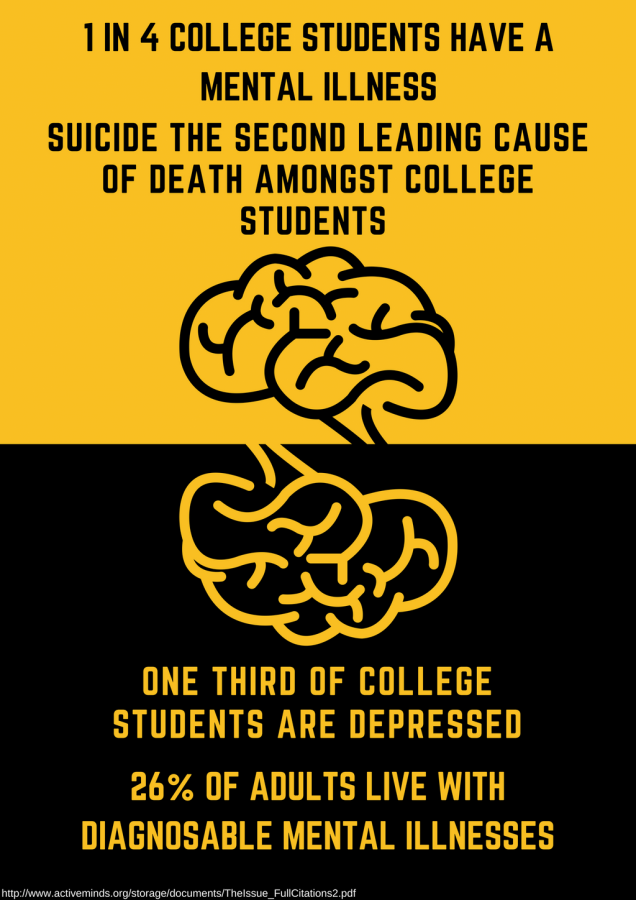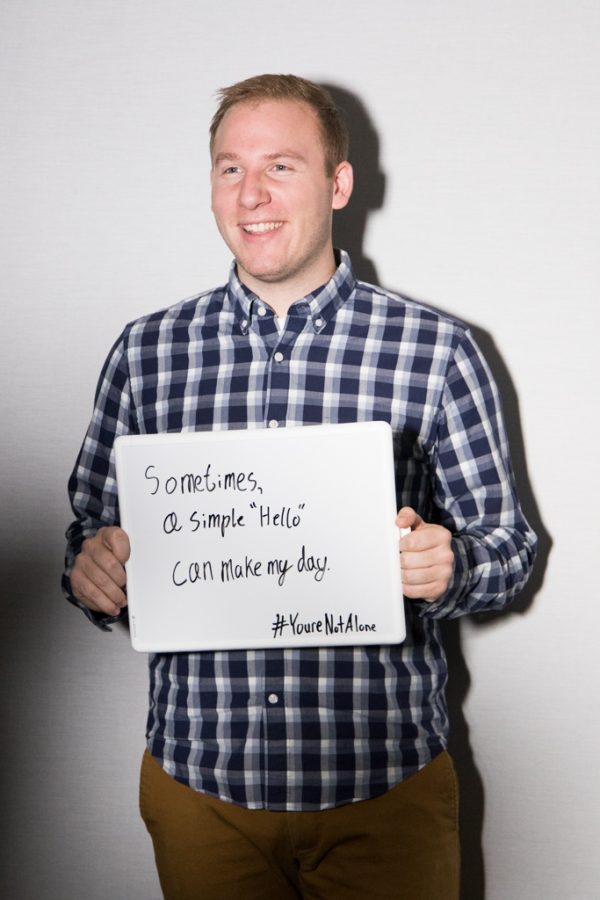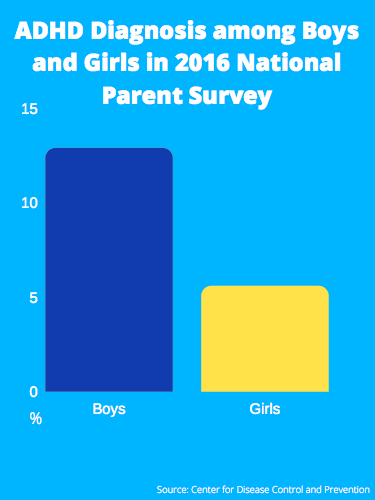 When I hear the phrase “mental illness,” I think back to a video on schizophrenia I watched in my ninth grade biology class. We were learning the mysteries of the brain, and how hard it was to grasp what went on inside the head of a person with schizophrenia. The example of a young girl living with schizophrenic episodes was indicative of how little can be understood.
When I hear the phrase “mental illness,” I think back to a video on schizophrenia I watched in my ninth grade biology class. We were learning the mysteries of the brain, and how hard it was to grasp what went on inside the head of a person with schizophrenia. The example of a young girl living with schizophrenic episodes was indicative of how little can be understood.
Learning how brain chemistry works is not the only way to gain an understanding of mental illnesses. As pointed out by Marquette’s recent Mental Health Awareness week, mental illnesses come with negative stigmas, and little conversation is devoted to the understanding of what they are and how they affect individuals differently. This doesn’t just happen on university campuses, where anxiety, depression and eating disorders commonly go untreated, but it is an issue in all corners of in society.
The media is complicit in the over-simplification and misrepresentation of mental health. When actress Amanda Bynes was in the spotlight for driving under the influence and directing inappropriate tweets at the rapper Drake, the press claimed she had schizophrenia or bipolar disorder and was receiving treatment in a rehabilitation facility.
Bynes’ lawyer released a statement last week that she was never diagnosed with schizophrenia or bipolar disorder. Rather it was as if tabloids and media outlets simply attributed her bad behavior to mental illness. The general public was following suit, taking the media’s diagnosis as fact. I’ve even heard (in the few conversations I have about Amanda Bynes) that her “illness” made it OK for her to act so inappropriately. Tabloids are short-sighted and proved insensitive to those individuals who are actually living with schizophrenia and misconstrue the hardships they face.
Even professional diagnoses can be inadequate in describing mental health. Misinformation often leads to kids being misdiagnosed with ADHD; war veterans are often at a loss in seeking help for symptoms of PTSD. There is a lot that is not understood about mental health, and this is a problem when people seek medical help. Behavior is not the only presentation of mental illness; much more needs to happen in the area of evaluation and diagnosis, most importantly with professionals.
It is problematic that mental illnesses have become a catch-all excuse for those who act out of the ordinary. If someone is more sad than usual, some generalize and claim he or she is depressed, or if people experience mood swings, we think of them as bipolar. Behavior that does not meet society’s expectations is not reducible to a mental illness, although that is how many treat it.
Active Minds, the national organization that sponsored MHA Week, supports ending the silence and stomping out the stigma of mental health through education. Advocacy and education are cornerstones to the groups mission, which began at the University of Pennsylvania under the name Open Minds and since expanded to other campuses, including Marquette.
There is a great need to speak the truth about mental illnesses so people who have them are not forced out of conversation or talked about in a harmful way.
While we might not be able to comprehend how mental illnesses affect the brain or why they present themselves differently in each person, we should know it is not a joke to be thrown around or an excuse to be made.
MHA Week already took place, but the open conversation about mental health and those who face illnesses must continue. If approached from a considerate and knowledgeable perspective, mental illness can be given the attention it requires instead of being used to explain even the smallest deviations from what is considered “normal” behavior.





